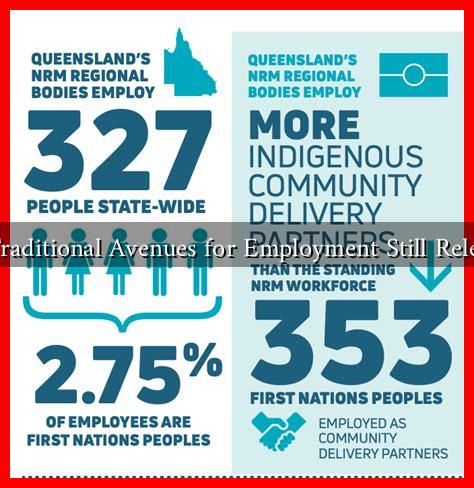-
Table of Contents
Are Traditional Avenues for Employment Still Relevant?
In an era marked by rapid technological advancements and shifting economic landscapes, the relevance of traditional employment avenues is increasingly being questioned. As remote work, gig economies, and digital entrepreneurship gain traction, many are left wondering: do conventional jobs still hold value? This article explores the current state of traditional employment, its challenges, and its enduring significance in today’s job market.
The Evolution of Employment
Historically, traditional employment has been characterized by full-time positions with established companies, often accompanied by benefits such as health insurance, retirement plans, and job security. However, the rise of technology and changing workforce dynamics have transformed this landscape. Key factors influencing this evolution include:
- Technological Advancements: Automation and artificial intelligence are reshaping industries, leading to the displacement of certain jobs while creating new opportunities.
- Gig Economy: Platforms like Uber, Upwork, and Fiverr have popularized freelance work, allowing individuals to choose when and how they work.
- Remote Work: The COVID-19 pandemic accelerated the shift towards remote work, prompting companies to rethink their employment models.
Challenges Facing Traditional Employment
Despite its long-standing presence, traditional employment faces several challenges that threaten its relevance:
- Job Security: Many traditional jobs are no longer as secure as they once were. Layoffs and downsizing have become common, leading to a sense of instability among employees.
- Work-Life Balance: The rigid structure of traditional jobs often clashes with the desire for flexibility, prompting many to seek alternative work arrangements.
- Skill Mismatch: As industries evolve, the skills required for traditional jobs may not align with the current job market, leaving many workers underqualified.
The Enduring Value of Traditional Employment
Despite these challenges, traditional employment continues to offer several advantages that cannot be overlooked:
- Stability and Benefits: Traditional jobs often provide a level of financial stability and benefits that freelance or gig work may lack, such as health insurance and retirement plans.
- Career Development: Many companies invest in employee training and development, offering opportunities for advancement that are less common in freelance roles.
- Networking Opportunities: Working in a traditional environment allows for face-to-face interactions, fostering relationships that can lead to career growth.
Case Studies: Success in Traditional Employment
Several companies have successfully adapted to the changing landscape while maintaining traditional employment structures. For instance:
- IBM: Once a leader in traditional employment, IBM has embraced remote work while still offering full-time positions with comprehensive benefits, demonstrating that traditional models can evolve.
- Salesforce: This tech giant has maintained a strong commitment to employee well-being, offering flexible work arrangements while ensuring job security and career growth opportunities.
These examples illustrate that traditional employment can coexist with modern work trends, adapting to meet the needs of today’s workforce.
Statistics on Employment Trends
According to a report by the U.S. Bureau of Labor Statistics, as of 2022, approximately 78% of workers were employed in traditional jobs, highlighting that a significant majority still rely on conventional employment for their livelihoods. Furthermore, a survey by Gallup found that 54% of employees prefer traditional employment due to the benefits and stability it offers.
Conclusion: The Future of Employment
In conclusion, while traditional avenues for employment face significant challenges in the modern job market, they remain relevant and valuable. The stability, benefits, and opportunities for career development that traditional jobs provide cannot be easily replicated in gig or freelance work. As the workforce continues to evolve, it is essential for both employees and employers to adapt, finding a balance between traditional and modern employment models. The future of work may be hybrid, but traditional employment will continue to play a crucial role in shaping the economic landscape.
For further insights on employment trends, you can visit the U.S. Bureau of Labor Statistics.

